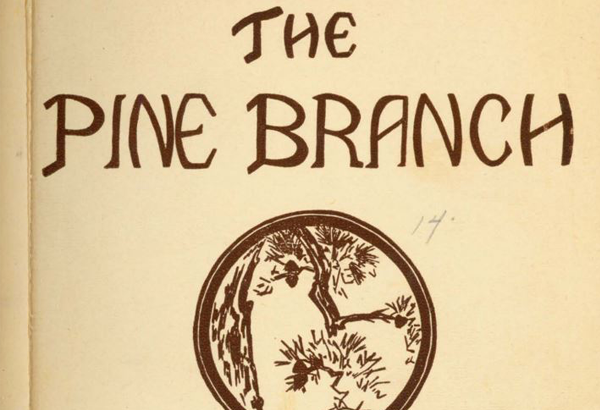The Digital Library of Georgia is pleased to announce the digitization of the Pinebranch, the first student publication of South Georgia State Normal College and Georgia State Woman’s College (both earlier names for Valdosta State University). The Pinebranch was a literary magazine published from September or October of 1917 to May of 1934. In addition to stories and poetry, the magazine included editorials, and news from campus and alumni. The digitized issues are available at https://vtext.valdosta.edu/xmlui/handle/10428/720/discover thanks in part to the DLG’s 2017 Competitive Digitization grant program, a funding opportunity intended to broaden DLG partner participation for statewide historic digitization projects.
The Pinebranch is important to researchers and teachers of women’s history, southern history, and the history of education, in that the journals reveal details about southern racial, ethnic, and gender specific attitudes in South Georgia’s progressive era, women’s suffrage, World War I, and the Great Depression. The publication’s articles provide first-hand written accounts that provide a detailed look at daily life and attitudes in a southern women’s school of the early twentieth century.
Melanie Byrd, professor in the department of history at Valdosta State University notes: “I can attest that my students who have worked in the university archives with the Pinebranch find the material especially engaging because the articles are products of college students like themselves. While students may not always identify with history in terms of national trends, big events, and abstract ideologies and worldviews, they do connect with the experiences of other college students. Publications like the Pinebranch bring the history of previous eras to life for students in a relatable, humanized manner. Reading the publication also illustrates directly and vividly how attitudes have changed over time.”
About Valdosta State University Archives and Special Collections
Valdosta State University (VSU) Archives and Special Collections supports VSU’s commitment to scholarly and creative work, enhances instructional effectiveness, encourages faculty scholarly pursuits, and supports research in selective areas of institutional strength focused on regional need by collecting, preserving, and providing access to records of enduring historical value documenting the history and development of VSU and the surrounding South Georgia region and in support of VSU curriculum. Visit VSU Archives and Special Collections at https://www.valdosta.edu/academics/library/depts/archives-and-special-collections/
About the Digital Library of Georgia
Based at the University of Georgia Libraries, the Digital Library of Georgia https://dlg.usg.edu is a GALILEO initiative that collaborates with Georgia’s libraries, archives, museums, and other institutions of education and culture to provide access to key information resources on Georgia history, culture, and life. This primary mission is accomplished through the ongoing development, maintenance, and preservation of digital collections and online digital library resources. DLG also serves as Georgia’s service hub for the Digital Public Library of America and as the home of the Georgia Newspaper Project, the state’s historic newspaper microfilming project.


